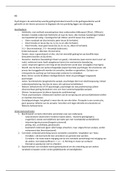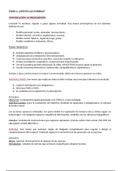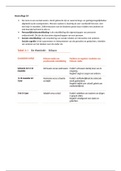P4 – Police Powers Muhammed Awais
Powers of Arrest
When you arrest someone, you take hold of their liberties and freedom such
as not being allowed in the public. This happens when there is a criminal
investigation under someone. This is part of the criminal justice system.
Many arrests are made by the police without a warrant, but the police need
to consider what is mentioned in S.24 Police and Criminal justice system. It
requires a person’s involvement or suspected involvement in a crime or a criminal offence. Or there
are reasonable grounds to believe someone needs to be arrested. These two need to be considered
when police arrest anyone. The police can arrest someone that has reasonable grounds of suspicion for
example if someone looks like they have committed a crime.
Normal citizens can also make arrests, all the citizens of the UK have the right to make arrests, this is
under the S.24 of PACE, this right form the basis of the powers of arrest which belong to Police
Community Support Officers. You will need to inform the suspect that you are making the citizens
arrest and you will need to call the police. Anyone can make a citizen’s arrest if they had witnessed
the crime happen.
The police can get an arrest warrant, they will need to apply for it via the magistrate’s court. They can
do this under S.1 of the Magistrates Court Act 1980. Once the police have the warrant they can make
the arrest even if they will need to use force to make an entry. Most warrants are issued when suspect
fails to attend court, breach of bail conditions and failing to pay for a fine.
When the police are making an arrest, they will need to follow the proper procedure, which is
identifying them as police officers, informing the person that they are under arrest, explaining the
reason for the arrest and issuing a caution. For example, in the case of R V Iqbal (2011), in this case
the defendant appeared in court to see a friend and a police officer spotted Iqbal and he had detained
Iqbal, but Iqbal ran away. He was involved in supplying class a drug. He was soon captured by the
police and was charged with the common law offence of escaping from lawful custody and Mr Iqbal
had appealed.
Breach of peace arrests are medieval, they have been around for such a long time. There is no clear
definition of the meaning and it is hard to define. But the case of R V Howell in which the judge
quoted what the meaning could be, “whatever harm is actually done or likely to be done to a person
or in his presence to his property or a person is in fear of being harmed through an assault, affray, a
riot, unlawful assembly or other disturbance.” This is only used where there is no other power and if
someone is in a dangerous position such as in domestic disturbances. The sentence for breach of peace
is that you tell the magistrates that you will not commit a crime and you will in a peaceful manner.
You can be arrested for public order offences such as riots, violent disorder, affray, drunk and
disorderly behaviour and use of threatening behaviour and language.
The consequences of making an unlawful arrest, is that the police can be found liable for false
imprisonment if they unlawful arrest a person.
Powers of Arrest
When you arrest someone, you take hold of their liberties and freedom such
as not being allowed in the public. This happens when there is a criminal
investigation under someone. This is part of the criminal justice system.
Many arrests are made by the police without a warrant, but the police need
to consider what is mentioned in S.24 Police and Criminal justice system. It
requires a person’s involvement or suspected involvement in a crime or a criminal offence. Or there
are reasonable grounds to believe someone needs to be arrested. These two need to be considered
when police arrest anyone. The police can arrest someone that has reasonable grounds of suspicion for
example if someone looks like they have committed a crime.
Normal citizens can also make arrests, all the citizens of the UK have the right to make arrests, this is
under the S.24 of PACE, this right form the basis of the powers of arrest which belong to Police
Community Support Officers. You will need to inform the suspect that you are making the citizens
arrest and you will need to call the police. Anyone can make a citizen’s arrest if they had witnessed
the crime happen.
The police can get an arrest warrant, they will need to apply for it via the magistrate’s court. They can
do this under S.1 of the Magistrates Court Act 1980. Once the police have the warrant they can make
the arrest even if they will need to use force to make an entry. Most warrants are issued when suspect
fails to attend court, breach of bail conditions and failing to pay for a fine.
When the police are making an arrest, they will need to follow the proper procedure, which is
identifying them as police officers, informing the person that they are under arrest, explaining the
reason for the arrest and issuing a caution. For example, in the case of R V Iqbal (2011), in this case
the defendant appeared in court to see a friend and a police officer spotted Iqbal and he had detained
Iqbal, but Iqbal ran away. He was involved in supplying class a drug. He was soon captured by the
police and was charged with the common law offence of escaping from lawful custody and Mr Iqbal
had appealed.
Breach of peace arrests are medieval, they have been around for such a long time. There is no clear
definition of the meaning and it is hard to define. But the case of R V Howell in which the judge
quoted what the meaning could be, “whatever harm is actually done or likely to be done to a person
or in his presence to his property or a person is in fear of being harmed through an assault, affray, a
riot, unlawful assembly or other disturbance.” This is only used where there is no other power and if
someone is in a dangerous position such as in domestic disturbances. The sentence for breach of peace
is that you tell the magistrates that you will not commit a crime and you will in a peaceful manner.
You can be arrested for public order offences such as riots, violent disorder, affray, drunk and
disorderly behaviour and use of threatening behaviour and language.
The consequences of making an unlawful arrest, is that the police can be found liable for false
imprisonment if they unlawful arrest a person.









